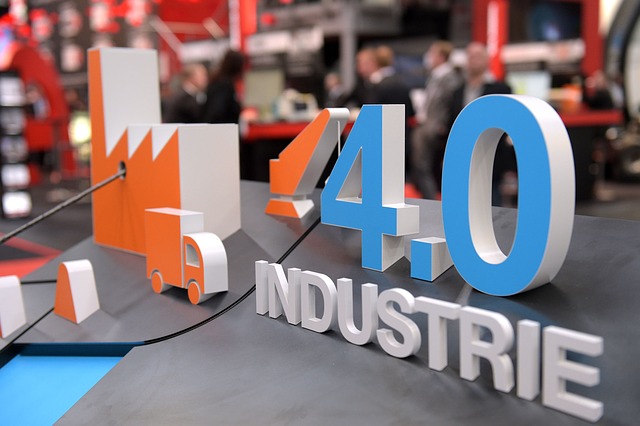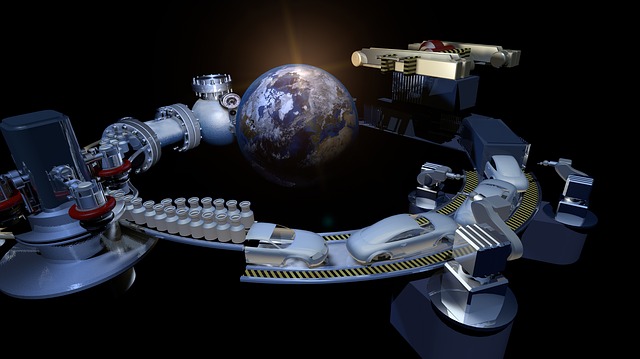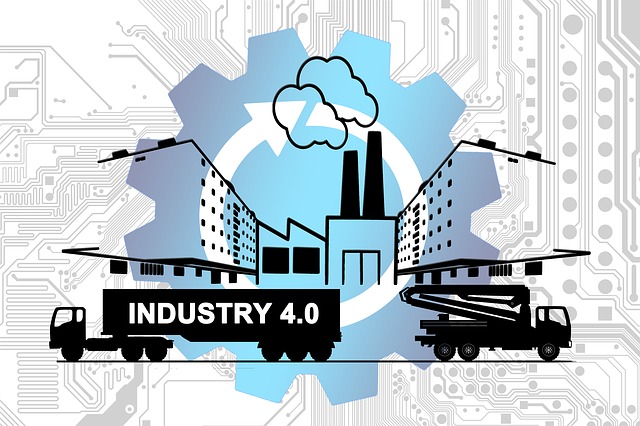In order to embrace IND4.0 working environments in a company, the training and qualifications of its skilled workers must be adapted to meet the new requirements of this interdisciplinary approach. For example, service engineers not only need practical mechatronics experience but also knowledge of IT infrastructures so that they can work at a high level to rectify machine standstills as quickly as possible. Interdisciplinary competencies are growing in importance, which is why it is necessary to adapt the skills and abilities that are taught for the various trades. Knowledge in Industry 4.0 as an enabler to Global Manufacturing is considered important for business development and entrepreneurship, innovation, and competitiveness of SMEs based in the partner countries. There is a need that HEI stakeholders in this case a University from Iceland and one from Romania, cooperate with industrial stakeholders, in this case represented by a Chamber of Commerce (RO) and a technical consulting bureau (MT) forming part of the EU’s Digital Skills and Jobs Coalition, to join forces to take action and develop a means by which to prepare people able to embrace the challenges being brought about the fourth industrial revolution. Of relevance to the EEA Grants Programme is the fact that the main objective of this project is to thus develop innovative training materials in order to train and equip HEI trainers with Industry 4.0 relevant knowledge skills and competences. The high level quality for these materials will be guaranteed by the quality of the project's partners that collectively have a body of expertise on Industry 4.0, technological entrepreneurship, SMEs as well as Global Manufacturing.

The manufacturing sector is increasingly becoming global, with companies that design and manufacture components, parts and finished products for other companies, exploiting expertise, raw materials, manufacturing capabilities, cost, and an efficient supply chain that spans across the globe. It is hence not a coincidence that industry is undergoing the 4th industrial revolution (IND4.0). Computers, automation systems, robotics and other technologies are being connected together through the internet-of-things (IOT) to setup what are known as Cyber-Physical Systems (CPS), aimed at enhancing operations, flexibility and a number of other key business performance metrics. This IND4.0 coupled with a shift towards global manufacturing (GM) or global digital manufacturing (GDM) is increasingly changing the way companies do business. It is consequently also influencing the skills set they expect from their workforce to cope with this new challenge. The EC report A New Skills Agenda for Europe states that 39% of companies currently have difficulties finding suitably skilled ICT professionals. At the same time, EC reports clearly reveal that SMEs accounting to about 70-85% of the workforce in different European Economic Area (EEA) countries. Thus, current and future workers employed across EEA countries, in either large countries or small island states such as IS and MT, or by micro-SMEs, SMEs and/or multinationals, need to have a set of skills and competences allowing them to adapt to working methods and opportunities arising from IND4.0 and GDM.











